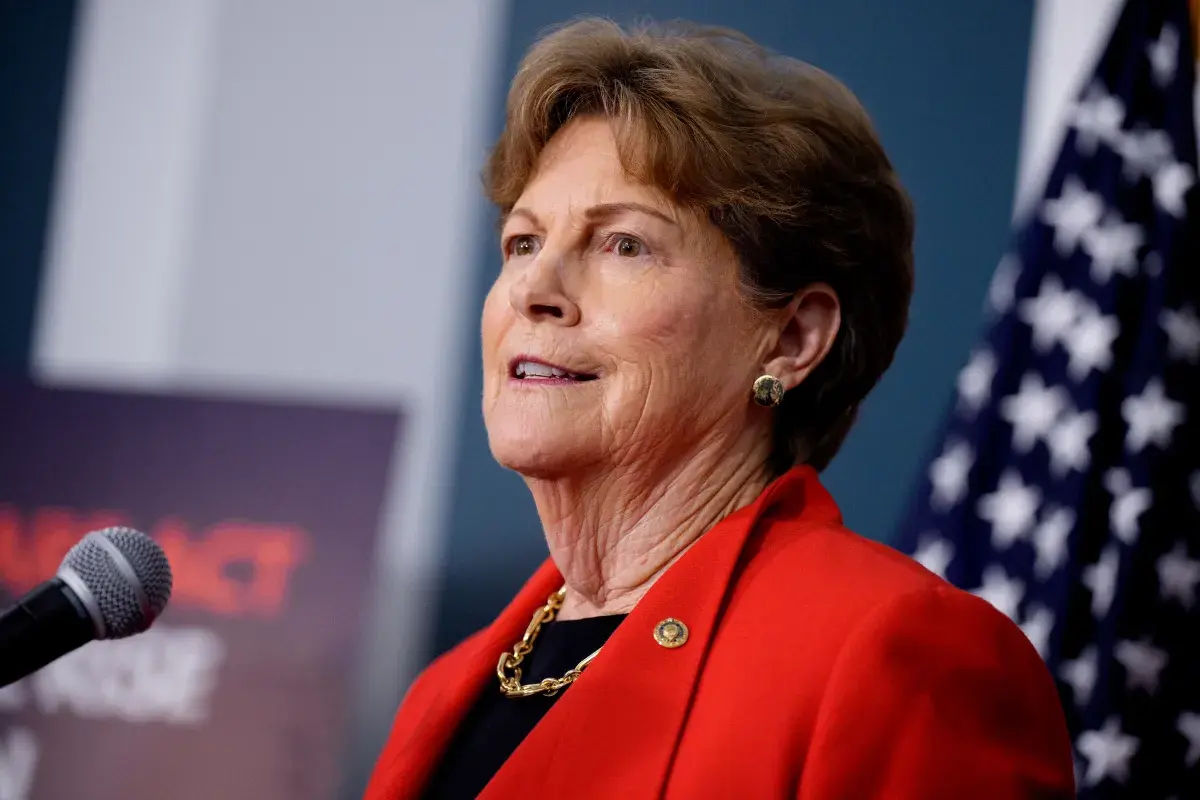Copyright Newsweek

The government shutdown has lasted for more than a month as lawmakers on both sides of the aisle remain at odds over health care subsidies. However, several Democrats met last week to try to reach a deal to end the stalemate and reopen the government in the coming days. Newsweek reached out to Senate Minority Leader Chuck Schumer, a New York Democrat, for comment via email on Monday. Why It Matters The ongoing shutdown is the second-longest in American history. Congress typically must pass a series of appropriations bills to fund the federal government. But it has failed to do so and has relied on continuing resolutions (CR) to maintain funding at current levels until those bills can be passed. However, the Senate has remained unable to pass a CR for more than a month. Most Democrats have taken the position that they will not vote for the bill unless it addresses their concerns about Affordable Care Act (ACA) subsidies set to expire at the end of the year, which they say could lead to costs for Americans jumping. Republicans, however, have said they should pass a bill that already advanced through the House of Representatives. What To Know The bill needs bipartisan support to pass through the Senate, where Republicans hold a 53-47 majority. It must advance through the 60-vote filibuster, a key procedural vote, meaning at least seven Democrats are needed to vote for it. Two Democrats—Senators John Fetterman of Pennsylvania and Catherine Cortez-Masto of Nevada—as well as independent Senator Angus King of Maine have already voted for the bill. But GOP Senator Rand Paul of Kentucky has voted against the bill. That means five more Democrats must vote to advance the bill for the shutdown to end. Meanwhile, at least eight Democrats, mostly representing swing states, met last week to discuss how to end the shutdown, The Hill reported. Here is a look at the Democratic senators who met last week to end the shutdown. Senator Jeanne Shaheen Jeanne Shaheen, a New Hampshire Democrat who is set to retire at the end of her current term, has been viewed as a critical vote. She has been reported by publications like The Hill and Politico to be among the senators engaged in negotiations. She was also one of 10 Democrats who voted to advance a similar CR in March to keep the government open. Senator Maggie Hassan Maggie Hassan, the other New Hampshire senator, is another vote to watch. She also voted in support of the March CR. Senator Gary Peters Like Shaheen, Gary Peters of Michigan is set to retire at the end of his term and voted in favor of advancing the CR in March. He was also involved in last week’s meeting. He told NOTUS last week that he expresses “optimism” because senators are negotiating. Senator Elissa Slotkin Elissa Slotkin, the other senator from Michigan and a key centrist, is also being watched closely amid negotiations, though she voted against advancing the CR in March. She recently told The Detroit News that she has spent “many hours” in negotiations with Republicans, but they “can't move an inch without the big guy in the White House telling them yes or no.” She said she believes voters will understand why Democrats are fighting for the subsidies when they see the price of their new health care. “At the same time, it's our responsibility to bring this thing to a close, and I continue to be open every hour of every day to having a serious negotiation. I am part of a small group of senators that are talking with the Republicans, that are proposing solutions, that are trying to find our way through this,” she said. Senator Jon Ossoff Jon Ossoff, a Georgia Democrat, was also involved in last week’s meeting, telling The Hill that bipartisan conversations are “continuing.” “My constituents don’t want their health insurance premiums to skyrocket. They want the government reopened,” he told the publication. Ossoff may be the most vulnerable Democratic senator in the midterms as he is up for reelection in a state narrowly won by President Donald Trump in last November's election. Ossoff notably did not vote for the March CR. Senator Mark Kelly Mark Kelly of Arizona was also listed as meeting with Democrats to reach an end to the shutdown, though he did not vote for the March CR. He represents a state Trump carried by about six points, meaning he could face a competitive reelection in 2028. He told KNXV, a Phoenix-based news station, over the weekend that it has been “hard to have a serious negotiation with the House of Representatives” when they have not been in session. Senator Peter Welch Peter Welch of Vermont also met last week to discuss how to end the shutdown. He did not vote to advance the March CR and has been sharply critical of Republicans amid the negotiations. Vermont is not a competitive state, and he is viewed as more liberal than other Democrats involved. “I’ve been in Congress for shutdowns before, but this one is different. I’ve never witnessed a shutdown where the President of either party has told congressional leaders to not negotiate at all. He's choosing to raise health care costs for millions of families,” he wrote last week to X. Senator Tammy Baldwin Tammy Baldwin of Wisconsin also met with the group of moderates last week. She is viewed as less of a centrist, but represents a state that Trump narrowly carried last year. She also did not vote to advance the March CR. Other Senate Democrats to Watch Senators Dick Durbin of Illinois, Kirsten Gillibrand of New York, Brian Schatz of Hawaii and Schumer all voted for the March CR and could be decisive votes again. Other Trump-state Democrats who declined to vote for the March CR include Ruben Gallego of Arizona, Raphael Warnock of Georgia and Jacky Rosen of Nevada. What People Are Saying Senate Minority Leader Chuck Schumer wrote Saturday to X: “Republicans have done everything in their power to raise your health care costs and kill SNAP for millions of hungry Americans.” Senate Majority Leader John Thune, a South Dakota Republican, wrote last week to X: “If there are any Democrats out there who care about the damage this shutdown is doing, then I have a bill at the desk: A clean, nonpartisan CR to fund WIC, SNAP, troop pay, air traffic controller pay, farm programs, housing assistance, national defense, and more.” Senator Jeanne Shaheen told WMUR last week: “What we’re hoping is that we can come to some agreement among members that we can then present to leadership and say this is something we ought to be able to agree to, now let’s vote on it.” What Happens Next? Negotiations to bring the shutdown to a close will continue over the coming days. Betting odds on Polymarket give the shutdown a 55 percent chance of lasting through November 16.



